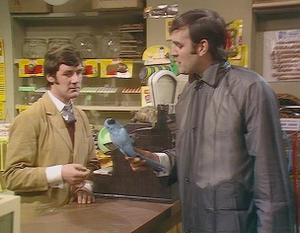
I’ve get prickly when I hear industry folks talk about value. “Customers want value” … “Value proposition” … “We need to create value” … Value is one of those foundational concepts in marketing and advertising. You can’t really question what it means because it’s a given.
But what does it mean? What’s value? Does it even exist? Is it in a thing? In the use of a thing? Reflected in its price? Does it last over time? Is it diminished if it’s shared? Can it grow with use? Are two of the same twice as valued or valuable?
There’s no such thing as value. It’s a concept — an abstraction — that helps us talk about marketing. The word “value” allows us to designate an idea which for lack of a better phrase means “a quantity of quality.” And in acquiring a word, this idea of “good” is represented and becomes a “thing.”
There is no such thing. Value in itself is unreal. Value can only be an attribute of a thing — and an attribute belonging to the person who experiences it. Who chooses, identifies with, desires, owns, gives it.
The concept of “value” exists only to objectify something that is fundamentally subjective.
Because it is subjective, “value” is “in the eyes of the beholder.” It is individual. But of course our values are not developed in complete isolation. We acquire and cultivate them through interaction with others, with our culture, its differences and identities, media, “leaders,” and so on.
Value is an attribute of things but equally a function of language. Through language we assign “value” to the things we talk about. Value exists where people agree that it exists.
Which is another reason that it is so foundational in marketing. Value justifies and legitimates marketing, by identifying the goals and objectives of marketing efforts. As if these efforts could “create” the value of things and transfer it to the “customer.”
Again, there’s no such thing. Value is simply that claims made in communicating about value. In context of the things and people regarded as being valuable. Marketing is just language — it’s the operation of a mode of transmission, medium of communication, and means of production. Production of language — of the ideas we individualize and identify with personally, be this with or without reinforcement by friends, media, and so on.
If user experience designers were to speak in terms of value — and we must on occasion cooperate with marketing — we would risk losing our independence of observation. We would risk presuming value exists, where it’s our job to learn about how and why users value their experience. We would risk taking the value of the product, its appeal, its functionality, its features, or whatnot — when our job is to understand not the product but the experience of the product; experience of the appeal; experience of functionality and features.
Our job as user experience designers (and researchers) is to discover the dimensions of experience in all forms, good and bad. Value doesn’t come into it. Because we can’t make sense of “value” vs “valueless.” We use “meaningful” and “meaningless.” “Valueless” is not a description of human experience. Meaningless is. And we don’t know what the meaning means unless we watch, listen, ask, and learn.
Meaning can be personal, individual, and private. It can be social, unifying, shared, and collective. It can be traditional, set, sacred, and identifiable. Or it can be fleeting, erupting, now, and full of expectations. Or lost, missed, mourned, forgotten.
So when we hear about value, and the many favors it does for the customer, we should pause. And think, and instead of wondering about this customer value, wonder about its value for the marketer. That’s research. That’s insight. That’s framing. And there’s value in that.

Comments